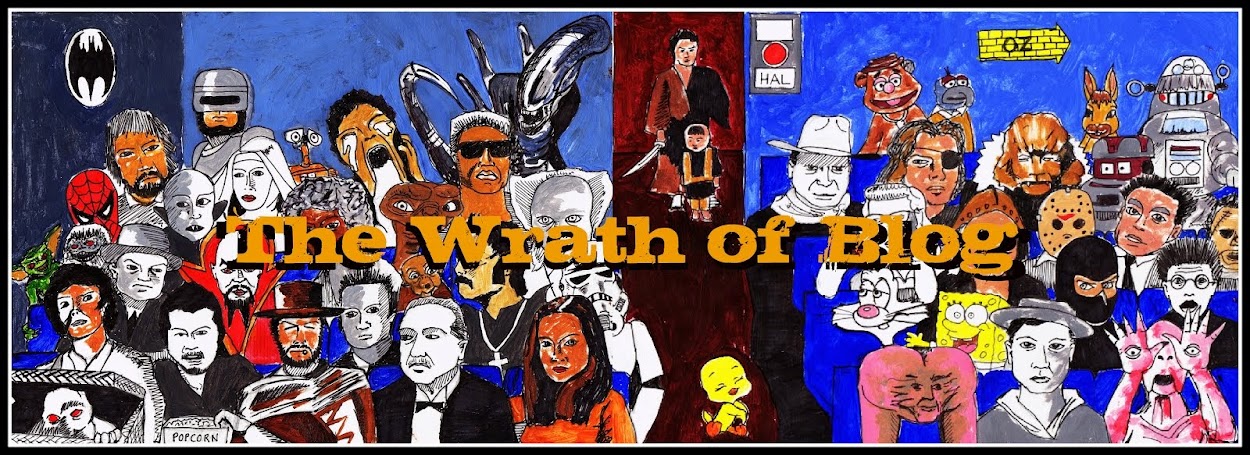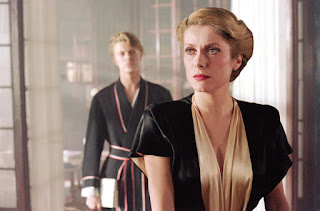 In a supermarket named Shopwell's, the various tasty treats that line the shelves spend their days praying they will be picked and taken to the great unknown by shoppers, who they view as gods. Each morning starts with a sing-a-long, and they try to live their life by a set of rules they believe will led to them being chosen, including no sex until they're out of their packet. Hot dog Frank (Rogen) only allows himself to touch tips with the bun he's in love with, Brenda (Kristen Wiig), saving themselves for the inevitable day when they get carried off into paradise. But with the return of Honey Mustard (Danny McBride), who claims that he witnessed torture and horror at the hands of the 'gods' who devoured some of his friends, Frank sets off on a journey of discovery and awakening.
In a supermarket named Shopwell's, the various tasty treats that line the shelves spend their days praying they will be picked and taken to the great unknown by shoppers, who they view as gods. Each morning starts with a sing-a-long, and they try to live their life by a set of rules they believe will led to them being chosen, including no sex until they're out of their packet. Hot dog Frank (Rogen) only allows himself to touch tips with the bun he's in love with, Brenda (Kristen Wiig), saving themselves for the inevitable day when they get carried off into paradise. But with the return of Honey Mustard (Danny McBride), who claims that he witnessed torture and horror at the hands of the 'gods' who devoured some of his friends, Frank sets off on a journey of discovery and awakening.Similar in many ways to Pixar's Toy Story trilogy, Sausage Party imagines what it would be like if the food we consume to eagerly could talk to each other and wonders what they would make of us. But while Woody and co. would flop to the ground whenever a human walked in the room, the characters here exist in the 'fourth dimension', unseen by humans. This allows more freedom for directors Greg Tiernan and Conrad Vernon to deliver as many outlandish set pieces as they would like, and two scenes in particular - one inspired by Saving Private Ryan (1998) and the other featuring an Irish potato being skinned alive while his friends watch - are actually quite terrifying. The film is certainly at its best during these moments, and there are scenes of real ingenuity amongst the carnage.
The first half whizzes by and is a blast, but then the film seems to lose direction and wander aimlessly from one scene to another. It also struggles to tickle the funny bone, and relies too heavily on tired food puns, familiar shtick from the likes of James Franco, Jonah Hill, Michael Cera, Paul Rudd and Bill Hader, and outright vulgarity. Someone should point out to the writers - which include Rogen and regular collaborator Evan Goldberg - that using "fuck" every other word doesn't automatically make a film 'adult', but quickly becomes unpleasant and completely unnecessary, especially when the characters are otherwise perfectly likeable. Also, the inclusion of Douche (Nick Kroll), the cavity-cleaner who holds a grudge against Frank, serves only a distraction from the more interesting central plot.
Still, despite its many flaws and irritating tics, I very much enjoyed Sausage Party for what it is, and it's like nothing I've ever seen before. If you haven't enjoyed much of Rogen's previous output, chances are you won't love this, although there's plenty of visual splendour to savour in between the dick jokes. At its best, it offers interesting parallels to real-world issues, such as the relationship between a lavash named Kareem (David Krumholtz) and a bagel named Sammy (Edward Norton doing a pitch-perfect Woody Allen impression), and their bickering over shelf space. Of course, this is the edible version of the Israeli-Palestinian conflict, and while it may embrace comedic stereotyping throughout, Sausage Party never intends to offend, and instead offers a surprisingly sympathetic message about the necessity of religion. Whatever your view, the fact that we live in an age when a film like this can be greenlit and unleashed on a mainstream audience is cause for celebration.
Directed by: Greg Tiernan, Conrad Vernon
Voices: Seth Rogen, Kristen Wiig, Jonah Hill, Michael Cera, David Krumholtz, Edward Norton, Salma Hayek, Nick Kroll, Bill Hader, James Franco
Country: USA
Rating: ***
Tom Gillespie















